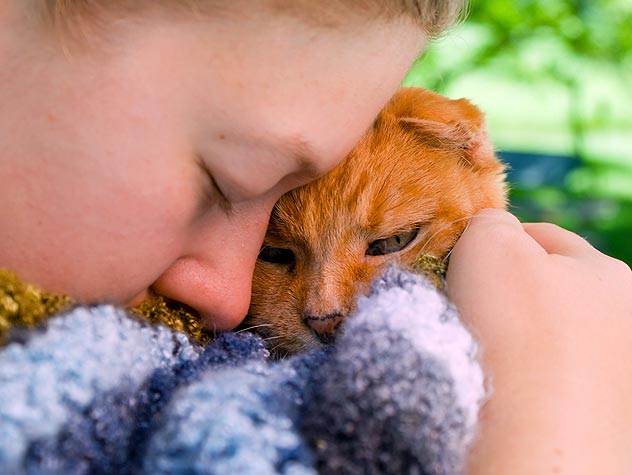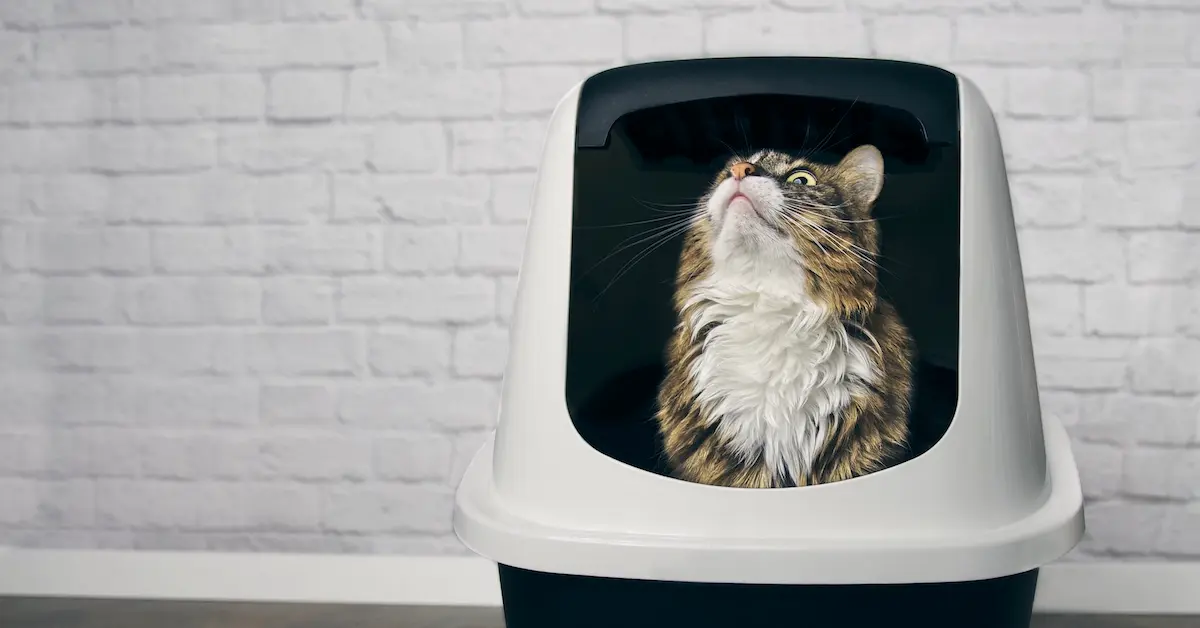To put a cat up for adoption, seek assistance from shelters and rescue groups. As a last resort, surrendering a pet to a local shelter or rescue organization is also an option.
To learn more about the surrender process, visit their website or call ahead. Welcoming a cat into your home is a big responsibility, and certain life circumstances may compel owners to put their feline friends up for adoption. According to the American Society for the Prevention of Cruelty to Animals (ASPCA), approximately 1.
5 million shelter animals are euthanized each year, which highlights the importance of finding a suitable and loving home for animals in need. Putting a cat up for adoption requires patience and sensitivity, especially since the process can be stressful for both the owner and the cat. This article discusses how to put a cat up for adoption while considering all options and includes helpful tips on how to find new homes for cats.

Credit: www.penguinrandomhouse.com
Reasons To Give Up Your Cat For Adoption
If you are considering putting your cat up for adoption, there can be various reasons such as financial or personal situations. To do this, contact a local shelter or rescue organization and follow their surrender processes. It may be stressful for your cat, but you can help by providing them with a calm environment during the transition.
No cat owner wants to give up their beloved pet, but sometimes it becomes necessary to do so. Whether it’s due to allergies, lack of time, or a move, putting your cat up for adoption can be a difficult decision. However, if you cannot provide the care and attention your cat needs, adoption may be the best option.
Allergies
If you or someone in your household is allergic to cats, it can be a challenging situation. The allergy symptoms can range from mild to severe and may make it impossible to live with a cat. Even with medication and regular cleaning, some allergies simply cannot be managed. In such cases, it may be best to put your cat up for adoption so that they can find a new home where they can be loved and cared for without causing allergies.
Lack of Time
Cats require time and attention just like any other pet. They need playtime, feeding, and grooming, as well as regular veterinary check-ups. If you have a busy schedule and cannot give your cat the time and care they require, it may result in neglect or behavioral problems. In such cases, it’s best to give up your cat for adoption so that they can have a new family who can give them the time and attention they need.
Moving
Moving to a new home or city can be stressful, especially for cats who may become disoriented and lost. If you’re moving to a place where you can’t take your cat, it may be necessary to give them up for adoption. This will ensure that they find a new home where they can be taken care of and loved.
Giving up your cat for adoption is not an easy decision, but it may be the best option for your pet’s well-being. Whether it’s due to allergies, lack of time, or a move, putting your cat up for adoption will ensure that they find a loving new home where they can receive the care and attention they deserve.
How To Prepare Your Cat For Adoption
Preparing your cat for adoption requires patience and time. Limit your cat to a single room or area and introduce it slowly to new surroundings. You can seek help from animal shelters, rescue groups, or rehome the pet yourself.
Putting a cat up for adoption can be a difficult decision for any cat owner. However, if you’ve decided to find your furry friend a new home, it is essential to prepare your cat for the transition. Before putting your cat up for adoption, you must ensure that your cat is healthy, socialized, and comfortable with interactions with humans and other animals. Here are some tips on how to prepare your cat for adoption.
Limiting Cat’s Space
Limiting your cat’s space is essential when preparing your cat for adoption. The smaller space allows your cat to be more of a companion animal to you and your family, which helps them adjust better to their new environment. Many cats have difficulties adapting to new and unfamiliar environments, so keeping them in a smaller space can help them feel more secure. A separate room with food and water, toys, and a comfortable bed can help make the process more comfortable for your kitty.
Making Cat Comfortable
When preparing your cat for adoption, you need to make your cat comfortable with human interaction and handling. Handle or pet your cat for short periods every day to prepare them for being touched by strangers. Also, exposing your cat to different sounds, smells, and environments can help them feel more comfortable in their new home. Make sure your cat is up to date on all vaccinations and vet visits. This will help ensure that your cat is in good health and ready to go to a new home.
Preparing your cat for adoption is essential to ensure that your pet finds a suitable and permanent home with a loving and responsible owner. Whether you are working on socialization, health, or making your cat comfortable, these preparations are crucial for finding your cat a new home. Remember, patience and care are the keys to success when preparing your cat for adoption.
Finding A New Home For Your Cat
If you need to find a new home for your cat, consider getting help from shelters and rescue groups. You can also surrender your pet to a local shelter or rescue organization as a last resort. Rehoming a pet can be confusing and stressful, so make sure to do your research and find a reputable organization to help you through the process.
If you’re faced with the difficult decision of putting your cat up for adoption, it’s important to find a new home where they can receive the love and care they deserve. There are several options available to you, including online adoption websites and shelters and rescue groups.
Online Adoption Websites
Online adoption websites like Adopt-A-Pet and Petfinder are great resources for finding potential adopters for your cat. These websites allow you to create a profile for your pet, including details about their personality and any special needs they may have. You can also screen potential adopters and upload vet documents to ensure your cat is going to a good home.
Shelters and Rescue Groups
Shelters and rescue groups can be a great option if you’re unable to find a new home for your cat on your own. Many organizations have programs in place for accepting surrendered pets, and they often have a large network of potential adopters. It’s important to do your research and find a reputable organization in your area. The Austin Humane Society and Austin Animal Center are great options in the Austin, Texas area.
No matter which option you choose, it’s important to remember that rehoming a pet can be a stressful and confusing experience for them. Be patient and understanding throughout the process, and always prioritize your cat’s well-being. With the right approach, you can find a new home where your cat will be loved and cared for just as much as they were with you.
The Process Of Surrendering Your Cat To A Shelter
When surrendering your cat to a shelter, it’s important to research various organizations to determine which one will best care for your pet. Reach out to the shelter prior to making the decision and ask detailed questions about their surrender process.
It’s also crucial to provide the shelter with as much information about your cat, including its medical history, personality, and behavior.
As a pet owner, a time may come when you can no longer care for your furry friend and need to put them up for adoption. This can be a difficult decision for any pet owner, but it is important to note that many shelters and rescue groups can provide a safe and caring environment for your cat until they find their forever home.
Agency Requirements
Before surrendering your cat to a shelter, it is important to research the different agencies in your area and their requirements for surrendering pets. Each agency will have a different process for accepting and caring for surrendered pets; thus, understanding these requirements beforehand can make the surrender process easier for you and your pet. It is recommended to visit their website or call ahead to learn more about their process.
Some agencies may require you to provide proof of ownership, while others may ask you to fill out a surrender form that details your cat’s medical history and behavioral traits. Additionally, some agencies may require a fee for surrendering your cat, so it is important to be aware of this cost.
What Happens Next?
Once you have surrendered your cat to a shelter, the agency will likely conduct an evaluation of your cat to determine any medical or behavioral needs. Depending on the agency’s process, your cat may be placed in a holding facility or foster home until they are ready for adoption.
During this time, it is natural to feel worried about your cat’s wellbeing; however, many shelters and rescue groups provide updates and photos of your cat’s progress in their care. If you provided the agency with any medical records or vaccination information, they will ensure that your cat receives the necessary medical care while under their care.
Surrendering a pet can be a difficult decision for any pet owner, but it is important to remember that many shelters and rescue groups are equipped to provide a loving and safe environment for your cat until they find their forever home. By following agency requirements and understanding the surrender process, you can ensure the best possible outcomes for your furry friend.
Reclaiming Your Cat After Surrender
Putting a cat up for adoption is never an easy decision, but if you can no longer care for your feline companion, there are options available. The first step is to reach out to local shelters and rescue organizations, who can guide you throughout the surrendering process.
Rehoming a cat may be stressful for your furry friend, but with patience and care, they can adjust to their new home.
If you have surrendered your cat to an adoption center and have now changed your mind, there may be a chance that you can reclaim your fur baby. However, there are certain factors that need to be considered, such as the timeframe and recovery period.
Timeframe
The timeframe for reclaiming your cat can vary depending on the shelter’s policies and how long ago you surrendered your pet. Some shelters may have a specific time frame for reclaiming pets, while others may have a waiting period before allowing pets to be reclaimed. Therefore, it is essential to check with the adoption center to know their policies and procedures.
Recovery Period
After reclaiming your cat, you must provide them with enough time to recover from the emotional stress of being in a shelter. It is recommended to create a conducive environment for your cat by creating a cozy bed, providing enough toys and scratching posts, and giving them love and attention.
It is essential to understand the policies of the adoption center before surrendering your cat, as well as the timeframe and recovery period for reclaiming your pet. By following these guidelines, you can help your cat readjust to their new life and strengthen the bond between you and your feline companion.
Dealing With Pet Adoption Remorse
If you need to put a cat up for adoption, it’s important to seek help from shelters and rescue groups first. As a last resort, you may be able to surrender your pet to a local shelter or rescue organization.
Rehoming a cat can be stressful and confusing for the pet, but there are resources available for those who need to find their pet a new home.
Adopting a pet means taking full responsibility for their care and well-being. However, sometimes circumstances change and you may find yourself unable to provide the necessary care for your cat. In such cases, putting up your cat for adoption may be the best option. But, sometimes after making this decision, you may still experience pet adoption remorse. Here are some options to consider when dealing with such feelings:
Returning Pet to Adoption Agency
If you adopted your cat from an adoption agency, check the adoption contract to see if there is an option to return the pet. Most contracts stipulate that you return the pet if things aren’t working out. Reach out to the adoption agency and ask for assistance. They may be able to help you find a suitable home for your cat or provide the necessary care.
Rehoming Pet Yourself
If returning your cat to the adoption agency is not an option, rehoming the pet yourself may be the next best option. However, it is important to exercise caution and ensure your cat goes to a safe, loving home. Consider posting on social media or in local pet groups to find potential adopters. You can also reach out to friends or family members who may be interested in adopting your cat. Ensure to screen potential adopters and ask for references before finalizing the adoption.
Dealing with pet adoption remorse can be difficult, but knowing your options can make the process easier. Take the time to consider what is best for your cat and do not hesitate to seek assistance from adoption agencies or animal rescue organizations if necessary.
Frequently Asked Questions For How To Put A Cat Up For Adoption
Where Can I Put My Cat If I Don’t Want It Anymore?
If you no longer want your cat, the best course of action is to contact shelters and rescue groups. As a last resort, you may be able to surrender your pet. Visit the website or call ahead of each agency to learn more about their process on pet surrender.
You can also rehome your pet yourself or seek help from friends and family.
How Do I Rehome My Cat In Austin?
To rehome your cat in Austin, you can get help from local shelters and rescue groups. It’s important to follow their specific surrendering process to ensure your pet is cared for properly. You can also explore other options like adopting out your pet through Adopt-A-Pet or keeping them with you as you introduce them to new areas.
Remember, rehoming can be difficult for your cat, so be patient and understanding.
How Hard Is It To Rehome A Cat?
Rehoming a cat can be stressful and confusing for them, especially since their whole life gets uprooted. Each agency and shelter has different processes for surrendering a pet. There are options available, like asking for help from shelters, rescue groups, or a last resort of surrendering your pet.
What If I Adopt A Cat And I Don’t Want It Anymore?
If you no longer want your adopted cat, returning it to the shelter or rescue organization you adopted it from might be the best choice. Rehoming the cat yourself is also an option. Local shelters or rescue organizations may have different processes for surrendering a pet to their care.
It’s essential to learn more by visiting their website or calling them ahead to find out more about the process. As a last resort, surrendering your pet to a local shelter or rescue organization is an option.
Conclusion
Finding a new home for your cat can be a difficult decision, but there are many resources available to help make the process easier. Shelters and rescue organizations are a great option, and each agency has a different process for surrendering a pet to their care.
Rehoming your cat yourself may also be a good choice, ensuring that your furry friend finds a loving new home. Remember, it’s important to prioritize your cat’s well-being and safety throughout the process.





2 Responses